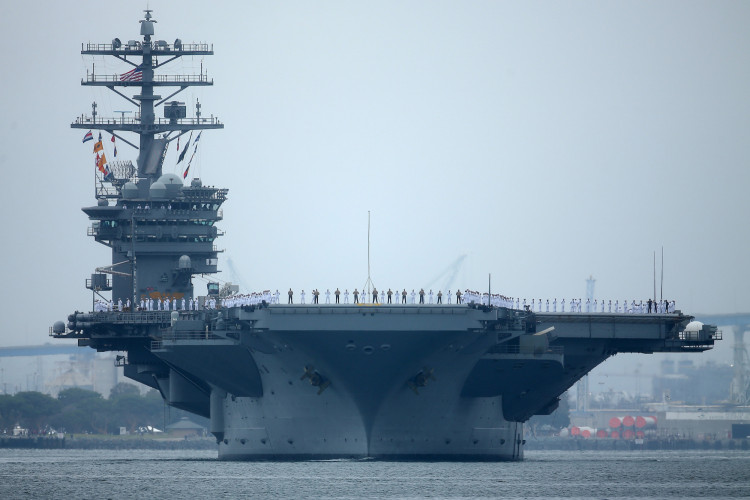Philippine President Ferdinand Marcos Jr. declared on Monday that the Philippines would not yield its position on the South China Sea disputes. This declaration comes even as Manila has reached a "provisional arrangement" with China regarding resupply missions to the contested Second Thomas Shoal. Marcos emphasized the importance of maintaining the Philippines' stance while seeking peaceful resolutions through diplomatic channels.
In his State of the Nation Address, Marcos asserted, "We cannot yield and we cannot waver. We must assert our rights in the South China Sea, but we will do so through proper diplomatic channels and mechanisms under the rules-based international order." His remarks were met with a standing ovation from Congress, highlighting the strong domestic support for his stance on maritime sovereignty.
The provisional arrangement with China, though not detailed by either nation's foreign ministries, aims to de-escalate tensions and manage maritime differences peacefully. The Philippine Department of Foreign Affairs (DFA) clarified that the agreement would not prejudice the national positions of either country. "The principles and approaches laid out in the agreement were reached through a series of careful and meticulous consultations between both sides, paving the way for a convergence of ideas without compromising national positions," the DFA stated.
China's Ministry of Foreign Affairs confirmed the temporary arrangement, reiterating its demand for the Philippines to remove the grounded naval ship, the Sierra Madre, from the Second Thomas Shoal. The Sierra Madre, deliberately grounded by the Philippines in 1999, serves as a critical outpost to reinforce its maritime claims. Manila regularly conducts resupply missions to the sailors stationed there, often leading to confrontations with Beijing.
"Between now and when the warship is towed away, should the Philippines need to send living necessities to the personnel living on the warship, China is willing to allow it in a humanitarian spirit if the Philippines informs China in advance and after on-site verification is conducted," the Chinese foreign ministry stated. However, the Philippines has consistently opposed informing China in advance about its resupply missions, asserting that these missions are lawful and do not require prior notification.
The South China Sea, a strategic waterway claimed almost entirely by China, has been a flashpoint for territorial disputes involving several Southeast Asian nations. The Second Thomas Shoal, in particular, has seen heightened tensions with incidents like the recent ramming of Filipino boats by China Coast Guard vessels, resulting in the injury of a Filipino sailor.
In his address, Marcos reiterated the Philippines' commitment to a peaceful resolution of disputes. "In the face of challenges to our territorial sovereignty, we will assert our rights and interests in the same fair and pacific way that we have always done," he said. He underscored the importance of diplomatic solutions within the framework of international law, specifically the 2016 ruling by the Permanent Court of Arbitration in The Hague, which invalidated China's expansive claims in the South China Sea.
Despite the provisional arrangement, there remains skepticism about China's intentions. The DFA urged China to honor the agreement in good faith, emphasizing that the Philippines is ready to implement it. "We urge China to do the same," the DFA stated, reflecting the cautious optimism surrounding the new arrangement.





